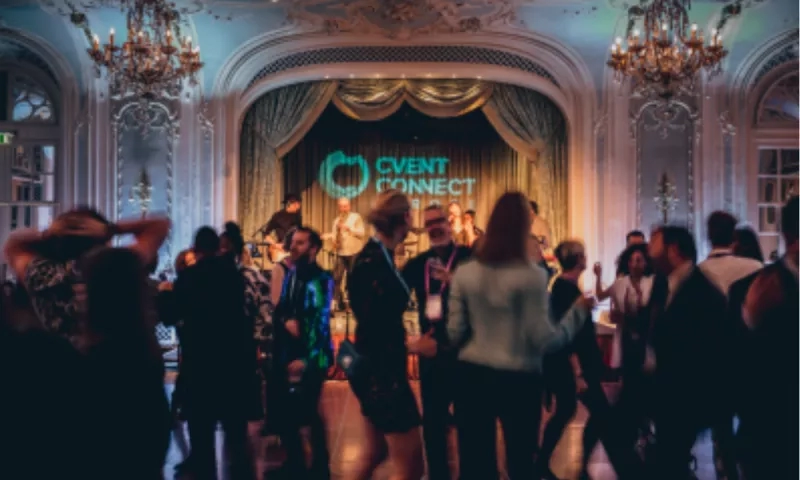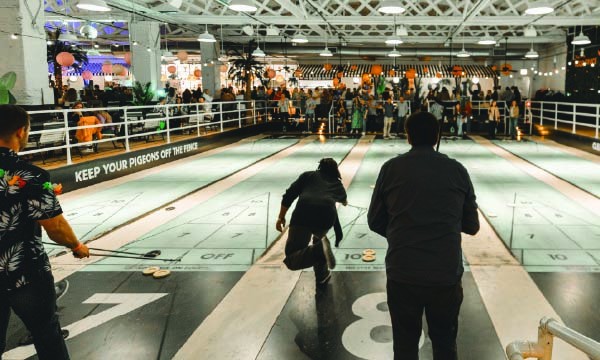
You know that sinking feeling.
It usually hits on a Tuesday morning. You’re scrolling through LinkedIn, coffee in hand, and you see it. A photo of three people you know laughing on a trade show floor. Then you read the caption: "Just finished the most incredible session on the future of AI in travel. Game changer. Can’t wait to implement this next quarter!"
It’s not just about missing a party. It’s about missing the conversation that happens before the press release comes out. By the time you read about the "next big thing" in a trend report, the people in that room have already built a strategy around it. They are six months ahead of you.
The hospitality industry is sprinting. The rules regarding tech, guest expectations, and where the smart money is going are being rewritten in specific rooms on specific dates. You don’t need a crystal ball to see where the industry is going in 2026. You just need to show up where the map is being drawn. We’ve looked at the year ahead to show you exactly where you need to be.
Why showing up is non-negotiable
It is easy to convince yourself that you are too busy to travel. The operations team is short-staffed, the budget is tight, and your inbox is a disaster zone. But staying planted at your desk is often the most expensive decision you can make.
For hotels and venues
It is easy to get stuck in the daily grind of "heads in beds" and banquet orders. But these events are where you lift your head up. This is where you find the corporate partners who will fill your ballrooms next year. It is where you find the tech stack that stops your front desk team from burning out.
You can’t solve systemic problems by staring at the same four walls. You have to go where the solutions are being demoed.
For CVBs and destination reps
You're selling a solution to a planner’s problem. You need to be on the floor to hear what those problems actually are. Are they terrified of rising F&B costs? Are they stressed about sustainability reporting? These trade show floors are where you see exactly what planners are losing sleep over so you can be the very first person to offer a fix.
For hotel groups and investors
You can look at spreadsheets all day, but they won't tell you the mood of the market. They won't tell you if confidence is high or if lenders are pulling back.
Shaking hands with the people signing the checks gives you insight no PDF report can match. You need to be in the room where the deals are being structured, not just reading about them after the ink is dry.
What you actually walk away with
We love digital tools. Zoom is great. Email is efficient. But business is still undeniably human. When you commit to the roadmap, you walk away with three things you can’t download:
- Real connection, not just LinkedIn requests: A digital "like" is not a relationship. These events are where 15-minute coffees turn into year-long contracts. It’s the difference between being a name in a database and being the person someone text messages when they have a $50,000 piece of business to place.
- The "secret" intel: The best information never makes it to a keynote stage. It happens in the hallways. It happens in the line for coffee. It’s hearing a competitor whisper about a new market they are entering, or a major planner complaining about a pain point that you can solve perfectly. That is the intel that gives you a competitive edge.
- Problem-solving on fast forward: Are you struggling with staffing? Confused by the latest commercial strategy trends? Somewhere on these expo floors, someone has already built the fix. You can spend six months researching a solution online, or you can spend two days walking a trade show floor and see five different options in action.
The 2026 Roadmap: Pick your lane
You can’t be everywhere (unless you have a clone), but you need to be somewhere. We have broken down the must-attend stops on the 2026 calendar based on what your business needs most.
1. The "Big Picture" strategy sessions
Who needs to be here: Owners, investors, hotel executives, and brand leaders.
The Goal: Follow the money.
If you want to know what the next five years look like financially, you need to be in New York as summer kicks off. The NYU International Hospitality Industry Investment Conference runs from May 31 to June 2 in the New York Marriott Marquis, NYC.
This is the heavyweight champion of investment events. It is a prestigious gathering where hospitality investors, owners, and executives come together to discuss market trends and investment opportunities. The conversations here are about asset management and global economic shifts.
Earlier in the year, you should also have The Hunter Hotel Investment Conference on your radar. Taking place March 16-18 at Signia by Hilton Atlanta Georgia World Congress Center, Atlanta, GA , this is where owners, brands, and capital providers gather for deep dives into investment and development.
It’s a great place to talk about financing, especially with the new venue at the Signia by Hilton Atlanta.
2. The tech and commercial deep dives
Who needs to be here: CIOs, revenue managers, marketing directors, and operations leads.
The Goal: Stop guessing which software is worth the budget.
If your tech stack feels like it’s held together by duct tape and hope, you need to book a ticket to San Antonio. HITEC is happening June 15-18 in San Antonio, TX. This is the world’s largest hospitality tech show.
We are talking about everything from Property Management Systems (PMS) and distribution to the latest in AI and on-property innovation. You can actually touch the tools and grill the vendors before you sign a contract.
But tech is useless if you don't have a strategy to sell it. That’s why the HSMAI Commercial Strategy Conference is such a vital stop. It’s also in San Antonio, TX, from June 16-17 , co-located with HITEC.
This event focuses on commercial strategy across sales, marketing, and revenue optimization. It’s the perfect one-two punch: go to HSMAI to figure out your strategy, then walk over to HITEC to buy the tools to execute it.
For those obsessed with the numbers, the Hotel Data Conference 2026 in Nashville, TN (Aug 5-7) is the place to be for forecasting and segmentation . It’s a data-focused forum that revenue leaders rely on.
3. The planner and business travel hubs
Who needs to be here: Sales teams, DOSMs, and anyone who needs to fill a pipeline.
The Goal: Shake hands with the people booking the business.
If you want to start 2026 strong, you go to PCMA Convening Leaders. It’s happening January 11-14 at Pennsylvania Convention Center, New Orleans, LA. This is the premier gathering for business events leadership. It is where the community gathers for strategy and destination showcases. If you want your venue or city on the shortlist for major conventions, showing up here sets the tone for your entire year.
Later in the summer, the focus shifts to the massive corporate travel market. The Global Business Travel Association (GBTA) Convention takes over Chicago, IL from August 3-5. This is the largest business travel event in the mix, covering policy, suppliers, and the convergence of meetings. With a major expo and education tracks, it’s essential for understanding the shifting policies of corporate travel programs.
And we can’t forget Cvent CONNECT in Nashville, TN and virtual (June 13-16). This is Cvent’s flagship event for planners, marketers, and hospitality professionals. It features training camps, a product roadmap, and a large trade show. It’s a unique environment where you can learn alongside the planners you are trying to attract.
4. The creative and niche experience labs
Who needs to be here: Catering managers, event designers, and DMOs.
The Goal: Get inspired and steal good ideas.
Sometimes you need to step away from the boardroom and get into the creative trenches. Catersource + The Special Event is heading to Los Angeles, CA from February 2-5. This is a co-located show bringing together the catering and live event worlds. It is packed with education and showcasing events. If your F&B program feels stale or your event designs are looking a little 2019, this is where you go to get your spark back.
For the Destination Marketing Organizations (DMOs) out there, your tribe will be in Portland, OR from July 21-23 for the Destinations International Annual Convention. This is where DMO leaders collaborate on sales, marketing, and community impact strategies. It is less about selling and more about learning how to manage your destination effectively.
Plan now or panic later
The calendar is absolutely packed with opportunities to learn, buy, and connect. But budgets are real, and time is limited. You cannot wake up in May and decide you want to go to a major investment conference in June. The flights will be gone, and the registration fees will be sky-high. It pays to be strategic.
To see the full roadmap of these essential stops, download our 2026 digital calendar.






